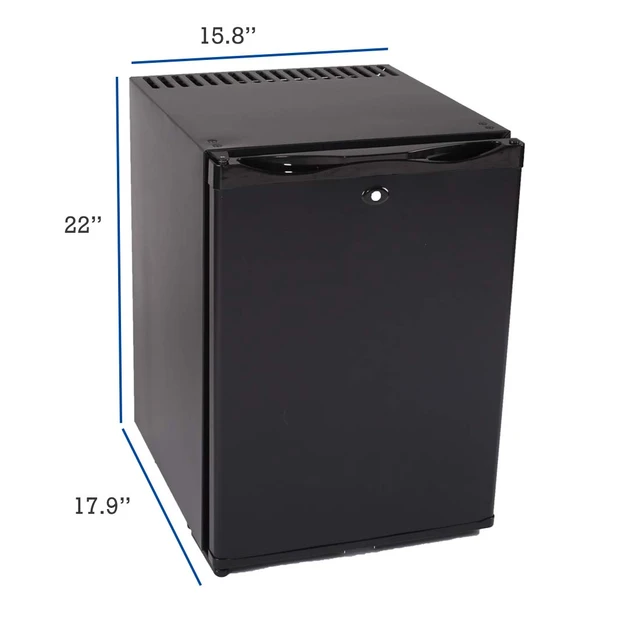Introduction:
The refrigerator of 2024 is an essential appliance in any household, playing a crucial role in keeping food fresh and preserving perishable items. Understanding the average life expectancy of a refrigerator is important for budgeting, planning, and making informed decisions about repairs or replacement. what’s the life of a refrigerator? In this article, we will explore refrigerators last, factors that can affect its longevity, signs that indicate it may be time for a replacement, and tips for extending the lifespan of your refrigerator.
Some common types of refrigerators:
There are several types of refrigerators available on the market, each with its own features and designs. Here are some common types of refrigerators:
Top Freezer Refrigerator:
This is the most traditional and common type of refrigerator. It features a freezer compartment on the top and a refrigerator section below. These refrigerators usually offer simplicity, affordability, and ample storage space.
Bottom Freezer Refrigerator:
In this type, the freezer compartment is located at the bottom, with the refrigerator section on top. Bottom freezer refrigerators make it easier to access frequently used items in the refrigerator section, as they are at eye level.
Side-by-Side Refrigerator:
Side-by-side refrigerators have two vertical doors that open from the center. One side typically houses the freezer compartment, while the other side is for the refrigerator. They provide a balanced layout, with narrow doors that require less clearance space when open.
French Door Refrigerator:
French door refrigerators have two vertical doors that open from the center, just like side-by-side models. However, the freezer compartment is located at the bottom, making it more accessible. They often offer wider refrigerator spaces and spacious freezer compartments.
Compact or Mini Refrigerator:
These smaller refrigerators are typically used in dorm rooms, offices, or small apartments. They offer limited storage capacity but provide convenience in compact spaces.
Built-in Refrigerator:
Built-in refrigerators are designed to blend seamlessly with kitchen cabinetry. They are usually more expensive but offer a customized and integrated look in modern kitchens.
Counter-Depth Refrigerator:
Counter-depth refrigerators have a shallower depth compared to standard models. They are designed to align with kitchen countertops, creating a sleek and built-in appearance.
Multi-Door Refrigerator:
Multi-door refrigerators, also known as quad-door or four-door refrigerators, have four or more compartments with separate doors. They offer flexible storage options and organization, with additional compartments for specific purposes such as deli items or beverages.
Each type of refrigerator has its advantages and caters to different needs and kitchen spaces. The choice often depends on personal preferences, available space, storage requirements, and budget.

What is the average life of a refrigerator?
Defining the Average Life Expectancy:
The average refrigerator life expectancy refers to the number of years it is expected to function properly and efficiently.
While individual experiences may vary, understanding what is average life of refrigerator can provide guidance when considering repairs or replacements.
Factors Affecting Lifespan:
Several factors can impact the lifespan of a refrigerator, including usage patterns, maintenance practices, quality of construction, and brand reputation.
The type of refrigerator, its components, and the environment it operates in can also influence its longevity.
Type of Refrigerator:
Different types of refrigerators, such as top-freezer, bottom-freezer, side-by-side, and French door models, can have varying lifespans.
The complexity of design, construction, and components can affect the durability and longevity of the refrigerator.
Brand and Quality:
The reputation and quality of the brand can influence the lifespan of a refrigerator.
Brands that invest in research, development, and manufacturing processes tend to produce more reliable and long-lasting appliances.
Average fridge lifespan:
On average, expected life of a refrigerator is between 10 to 15 years.
This estimate can vary depending on the factors mentioned earlier.
Signs of Aging or Deterioration:
Several signs may indicate that a refrigerator is reaching the end of its lifespan and may require replacement.
Frequent breakdowns, excessive noise, reduced cooling efficiency, and escalating repair costs are common indicators.
Energy Efficiency:
Energy efficiency plays a role in the lifespan of a refrigerator.
Older models that are less energy-efficient may have shorter lifespans due to increased wear and tear on components.
Regular Maintenance:
Proper maintenance practices can significantly extend the lifespan of a refrigerator.
Regularly cleaning the condenser coils, checking and replacing gaskets, and avoiding overloading the refrigerator can help maintain optimal performance.
Usage and Environment:
The frequency of use, temperature variations, and the environment in which the refrigerator operates can impact its lifespan.
Refrigerators exposed to extreme heat, humidity, or frequent power fluctuations may experience accelerated wear and shorter lifespans.
Repairs and Replacement Parts:
The availability and cost of replacement parts can influence the decision to repair or replace a refrigerator.
Older models may have limited availability of parts, making repairs more challenging and costly.
Upgrading to Energy-Efficient Models:
Upgrading to a new, energy-efficient refrigerator can provide multiple benefits, including extended lifespan, improved performance, and reduced energy consumption.
Energy Star certified refrigerators use less energy, contributing to their longevity and cost-effectiveness over time.
Environmental Considerations:
When considering the lifespan of a refrigerator, it is essential to consider the environmental impact of disposal.
Proper disposal and recycling of refrigerators are crucial to prevent the release of harmful substances, such as refrigerants, into the environment.
Tips for Extending Lifespan:
To maximize the lifespan of your refrigerator, consider implementing the following tips:
Keep the refrigerator clean, both inside and outside.
Avoid overloading the refrigerator, as this can strain the components.
Check and replace gaskets if they are worn or damaged.
Place the refrigerator in a well-ventilated area away from heat sources.
Regularly clean the condenser coils to maintain cooling efficiency.
Replacement Considerations:
When deciding whether to repair or replace a refrigerator, consider the age, condition, and frequency of past repairs.
If the refrigerator is reaching the end of its average lifespan, experiencing frequent breakdowns, or requiring costly repairs, it may be more practical and cost-effective to invest in a new appliance.
Warranty Coverage:
Warranty coverage provided by the manufacturer is an important factor to consider when evaluating the lifespan of a refrigerator.
Most refrigerators come with a standard warranty that covers parts and labor for a specific period, typically 1 to 2 years.
Some manufacturers offer extended warranty options that can provide additional coverage for an extended period.
Frequency of Technological Advancements:
Technological advancements in refrigeration can influence the lifespan of older models.
Newer refrigerators often feature innovative technologies such as improved insulation, more efficient compressors, and advanced temperature control systems.
These advancements can contribute to better performance, energy efficiency, and durability, potentially outlasting older models.
Usage Patterns and Household Size:
The lifespan of a refrigerator can be influenced by usage patterns and the size of the household it serves.
Frequent opening and closing of the refrigerator door, especially in larger households, can affect the compressor and other components over time.
Larger households may also place more strain on the refrigerator due to increased usage and storage demands.
Availability of Replacement Parts:
The availability of replacement parts can impact the lifespan of a refrigerator, especially for older models.
Manufacturers typically produce replacement parts for a certain period after the discontinuation of a model.
However, as refrigerators age, finding specific replacement parts may become more challenging or expensive.
Personal Preferences and Lifestyle Changes:
Personal preferences and lifestyle changes can influence the decision to replace it before it reaches its average age of a refrigerator.
If you desire additional features, better organization options, improved energy efficiency, or a different style, you may choose to upgrade your refrigerator earlier.
Cost Analysis:
When considering the lifespan of a refrigerator, it is essential to evaluate the cost-effectiveness of repairs versus replacement.
If the cost of repairs exceeds a significant portion of the price of a new refrigerator, it may be more practical to invest in a replacement.
Environmental Impact:
The environmental impact of refrigerators is another aspect to consider when discussing their lifespan.
Older models may consume more energy and use refrigerants that contribute to ozone depletion or climate change.
Upgrading to a newer, more energy-efficient refrigerator can reduce your carbon footprint and contribute to sustainability efforts.
Donating or Selling Old Refrigerators:
If your refrigerator is still in working condition but nearing the end of its lifespan, consider donating or selling it rather than disposing of it.
Many organizations accept used appliances, and someone may find value in a gently used refrigerator.
Conclusion:
what is the life expectancy of a refrigerator
life of refrigerator
lifespan of fridge
While the average life expectancy of a refrigerator is around 10 to 15 years, various factors can impact its actual lifespan. Usage patterns, maintenance practices, brand reputation, and quality of construction all play a crucial role. Signs of aging, increased repair costs, reduced cooling efficiency, and excessive noise are indicators that it may be time for a replacement. Regular maintenance, proper usage, and upgrading to energy-efficient models can extend the lifespan of a refrigerator. When making decisions about repairs or replacements, consider the age, condition, and cost-effectiveness of the appliance. By understanding these factors and following best practices, you can make informed decisions and maximize the lifespan of your refrigerator.





